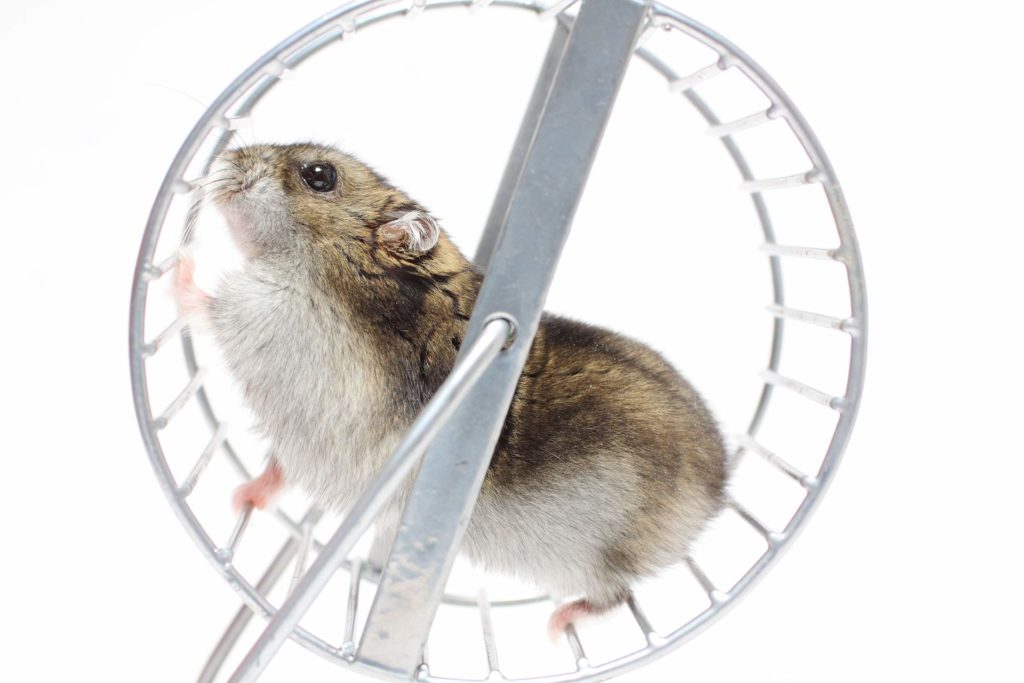Retrain Your Brain to Prevent Addiction or Relapse
12/19/17: Addiction Prevention \ Alcohol Addiction \ Drug Addiction
Numerous studies and research in the areas of science and human behavior all provide evidence that drug and alcohol addiction is housed in the brain. Some people are more hardwired to develop the disease because of genetic predisposition. Many addiction treatment and recovery programs (some better than others) are effective at ridding the body of the chemicals and helping restore behavior to a pre-addictive state. But wouldn’t there be more benefit to all in finding a way to stop addiction before it starts? Doctors at the Yerkes National Primate Research Center thought so too and discuss how to retrain your brain. Here is what they found.
A Not-So-Hard Habit to Break
Dr. Shannon Gourley of Emory University School of Medicine and Yerkes worked with a team of researchers focusing on the habitual aspects of addiction. Using a drug called Fasudi, known for its ability to engage neuron pruning, they introduced the drug to mice that were lured and monitored into “learn-then-reward” patterns.
It began as a choice. They were offered two reward paths: One path led to food, the other to cocaine. The second part of the study switched the available choices, with only one reward available. However, the path to get there required the mice to learn something new first, much like a roadblock that engaged the active part of the brain. The research illustrates how reward-based behaviors can take place without focused cognition. In laymen’s terms, I’ll explain it this way.
Let’s say you’re traveling a length of highway, the same stretch of road you travel five days a week to go to work. But today, is day six. You’re not going to work; however, you’re going to visit a friend that happens to live 5 miles north of where you work. You drive the highway and suddenly realize you’ve taken the exit you’d normally take to get to work. That’s habitual behavior. Sounds simple. Addiction is more complex than that.
Of Mice and Men (and Women)
How likely is it that men and women can benefit from the same research protocols as mice? Time will tell. Until then, we use the resources we have and investigate deeper into what makes our minds tick toward addictive behaviors and how to break the bad habit of ongoing drug and alcohol use.
Author Charles Duhigg provides compelling insights into the “how of habits” and what can be done to replace them with healthier, positive decision-making and action.

The Habit Loop
Let’s dial this blog back a bit. Think about the habits you have. Maybe you grab a beer or a glass of wine while cooking dinner, every night. Or you floss your teeth in the morning, at the same time each day, until your cup of coffee is done reheating for sixty seconds in the microwave. These courses of action are done without really thinking about it. Sure, there’s that split-second when you get the idea, a true millisecond, but then something else happens. The mind goes somewhere else yet somehow you complete the habit without realizing it.
Duhigg, in his book the Power of Habit, details the process of habits, breaking them down into three segments: cue, routine and reward.
- Habit Loop:
- Cue = Trigger
- Routine = Behavior
- Reward = Whatever brings pleasure or desired feeling
The dangerous part of habit is that the brain disengages, making it easy to continue the habit.
Breaking the Habit
There are consistencies with habitual behaviors, especially in addiction. Illicit drug addicts will use with the same people, buy from the same people, and repeat what they do and how they do it. If there is someone in the family or a friend that helps enable their addiction, they are enabling the habit to continue. (Maybe that’s why drug and alcohol abuse is often referred to as a habit.)
Happy hours can also be the source of initiating a habit.
- Stress on the job (Cue)
- Happy hours (Behavior)
- Cocktails (Reward)
Startling, how the process comes about in our lives. What remains are two questions:
- What can stop a habit once it’s formed?
- What can stop a habit from ever forming at all?
Change Your Environment, Change Your Life
Drinking or drug use come with a specific set of spoken and unspoken expectations. Many involve the place you’re in or company you’re with. It’s part of what makes the experience exciting, enjoyable and desirable. It’s the expectations and environment that help fuel the habit. If you really want to stop the habit, it’s easier to do it somewhere else.
There’s a reason why many medical professionals advise seeking drug or alcohol addiction treatment from a totally new environment, away from triggers, familiar people and places, and habitual expectations. Remember, the definition of insanity is doing the same thing over and over and expecting a different result.
Between Cue and Behavior Is the Key to Addiction and Relapse Prevention
The first two parts of the habit loop are much like the linear thought of cause and effect. “Something happens”. When a habit is involved, we respond to the “something happens” in the same way. Let’s stop right there.
After the cause (something happens) just pause. At that moment, we have the opportunity to make a decision, and choose to behave (effect) differently. Then the outcome is different, nullifying the habit. Something to think about the next time you pick up your toothbrush or the bottle of opioids next to the bed.
Concerned About Drug or Alcohol Habits Gone Too Far? We Can Help
602-737-1619
If you or someone you know needs help with addiction, contact 602-737-1619 or email [email protected] to get the help you need. Our acclaimed recovery environment merges upscale, luxury accommodations with affordability, clinical expertise and an unwavering commitment to patient care and aftercare.